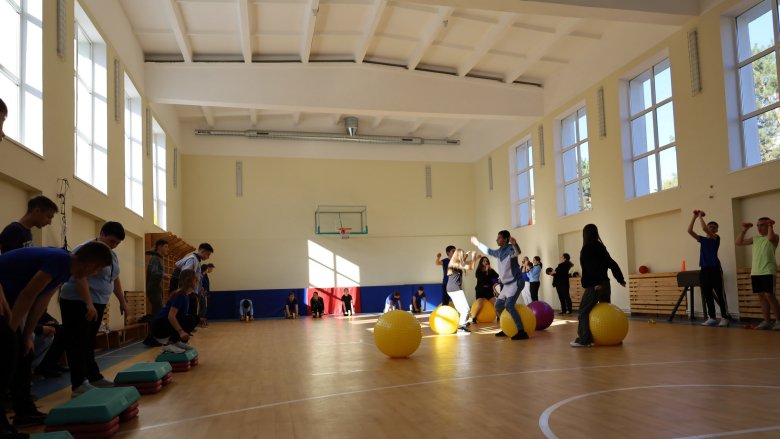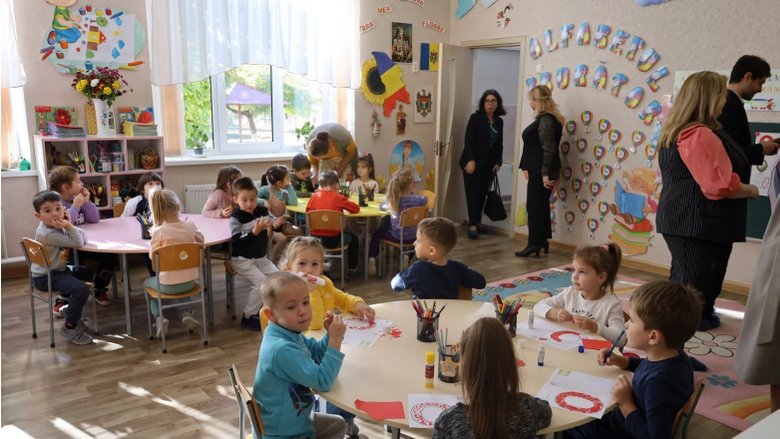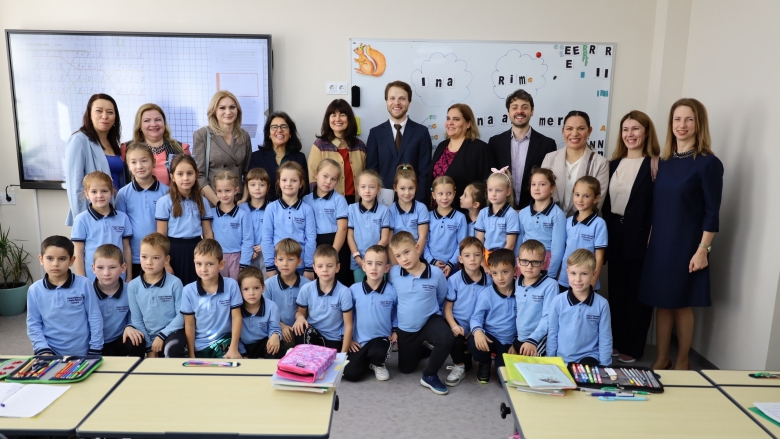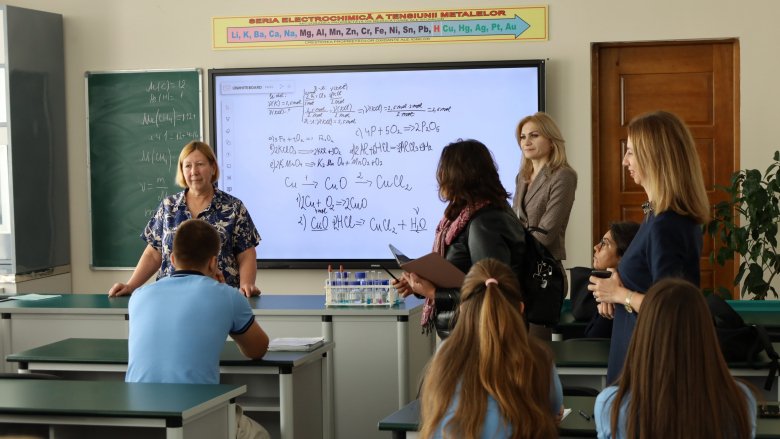Not long ago, students at “Alecu Russo” High School in Cojusna—a village less than 30 minutes’ drive from Chisinau—sat at the very same desks that their parents, or even grandparents, had. The school was in dire need of renovation, especially with a non-functional heating system and unreliable water supply. Science labs lacked proper equipment and darkly painted interiors created a gloomy, uninviting atmosphere. What should have been a place of learning and discovery felt old, uncomfortable, and inadequate, with facilities incapable of providing the village’s children with the skills and opportunity to reach their full potential.
That’s all changed. With the support of the World Bank through the Moldova Education Reform Project (MERP), ”Alecu Russo” has been completely transformed. Heating and water systems were overhauled, rooms repainted, and new desks purchased. Interactive smart boards now allow students to actively participate in lessons, manipulate digital content, collaborate, and watch presentations and virtual simulations. Physical education classes are stocked with new sporting equipment, and there are new chess sets and table tennis for downtime.
MERP-supported renovations have left the school more vibrant and engaging. That is helping to reduce stress, boost motivation, and improve academic performance—borne out by monitoring and evaluation that shows student satisfaction, teacher retention, and teacher engagement in the classroom all improved post-rehabilitation.

Rehabilitating Schools, Reinvigorating Learning
Cojusna’s high school now stands as a model institution, providing an enriching learning environment for grades 1-12 that is attracting students from outside the village, despite the added travel time. "Last year there were 720 children in the school, now we have 760. Students from prestigious schools from Chisinau are now coming to be educated in our village’s school, which, according to them, is more inviting. I believe that all children in the Republic of Moldova must have a school like ours,” emphasized Daniela Donoagă, Cojusna’s school director.
”Alecu Russo” was one of 23 hub schools across Moldova that benefited from renovation works under MERP, six of which have been rehabilitated by the Moldovan Ministry of Education and Research with the Government’s financial support.
MERP also equipped another 160 schools with new science labs and equipment for physics, chemistry, and biology classes, while 100 were provided with teaching and learning materials for inclusive education for students with disabilities and those with special educational needs. These children, together with psycho-pedagogues and teaching assistants, now benefit from tools like tablets, laptops, attention tracking devices, educational robots, digital magnifiers, voice recorders, visual memory training sets, keyboards with increased visibility, talking boards, three-handle joysticks, and hearing aids.
And during the COVID-19 pandemic, MERP provided 10,000 laptops for students who did not have a device to connect to online classes. Some of devices were given to primary school students, with priority to children from socially vulnerable families.
These efforts are ensuring Moldovan schools are better able to meet all students’ needs and forge a more inclusive learning environment and future for the country. “The changes greatly helped raising the quality of education. I feel more motivated now and eager to attends classes. And I’ve heard the same from students of different grades,” said 12th grader Valeria Postica.

Expanding on Success
MERP’s efforts and impact serve as a blueprint for further investments in education, which the Government of Moldova recognizes is crucial to developing the human capital necessary to compete in the global economy. Building on the success of MERP as well as lessons learned from site visits to schools, the World Bank and Moldova are pushing forward with the $60 million Education Quality Improvement Project (EQIP), which includes co-financing through three grants from the Global Partnership for Education, Early Learning Partnership and Global Concessional Financing Facility.

EQIP plans to:
- Rehabilitate another 15 schools like Cojusna’s “Alecu Russo,” and construct three new state-of-the-art high schools.
- Transform 15 kindergartens, helping to provide more pre-primary school opportunities and expand the provision of nursery services.
- Provide another 200 schools across the country with new equipment, furniture, and learning materials for students with special needs.
- Introduce a small grants program for 120 schools, which will develop school sub-projects to support in-service teacher professional development opportunities like promoting innovative pedagogical practices and establishing a professional learning network among teachers.
EQIP will ensure that tens of thousands of students across the country are able to attend schools with conditions that encourage learning and set them up for success.
The World Bank remains committed to helping Moldova make these crucial investments in human capital development. Together, we can ensure a more inclusive, resilient future for the Moldovan people.


